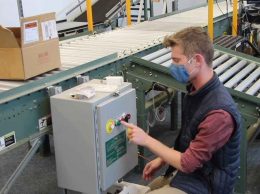Clean diesel, like clean coal, might just be headed for the scrap heap of environmental history.
Volkswagen’s stunning revelation that it cheated air pollution control rules in order to get better performance and better mileage from 11 million vehicles has sent its stock price plunging. It faces perhaps as much as $37,000 per vehicle or something like $18 billion in fines, a criminal probe is under way and customers are in a mood to punish the company.
This is a shocking reversal for a company that has challenged Toyota and GM for the No. 1 spot among global automakers. Its luxury brand, Audi, has been going toe-to-toe with Daimler and BMW to be on top. And it has claimed superiority in drive train technology, to the befuddlement of car makers in Japan and South Korea.
Now it all lies in ruins. There is no easy way back for VW, its management or its shareholders. Customers are going to be deeply skeptical of its claims that “German engineering” is superior. Except, of course, when it comes to building software that enables cars to game EPA pollution tests.
There are two deeper problems here. The first is that high-polluting energy sources such as coal and diesel fuel are really hard to scrub free of greenhouse gas emissions.
VW would have been far better off to have admitted that, adjust mileage and maintenance requirements to the true cost of diesel operations and let the marketplace judge if its cars were worth it. Likewise, the coal industry has to stop writing off the true cost of its greenhouse gas emissions and other pollutants on health and the climate.
The second is that very large companies are prone to make very large mistakes. Safety related problems at GM and Toyota have cost lives and billions of dollars. The financial crisis, one could argue, came about because very large companies were able to originate unsustainable loans, gain AAA ratings and market them because there was no competitor large enough to raise questions about their viability.
Is VW big enough to come back? Or simply too big to fail? We’re going to find out. Meanwhile, any promise of clean diesel has been severely undercut.
Transparency for nonprofits
Attorney General Kamala Harris says California has taken a step toward helping the public understand what charities are doing when they hire commercial fundraisers.
AB556, authored by Assembly member Jacqui Irwin, a Thousand Oaks Democrat, requires better disclosure about the use of commercial fundraising counsel from the for-profit sector and it extends the statute of limitation for bringing cases.
Nonprofit operators often forget, or choose to overlook, the fact that the people of California own their organizations. AB556 sends a reminder about who is the ultimate boss when it comes to charitable fundraising.
• Contact Henry Dubroff at hdubroff@pacbiztimes.com.






 Print
Print Email
Email

















